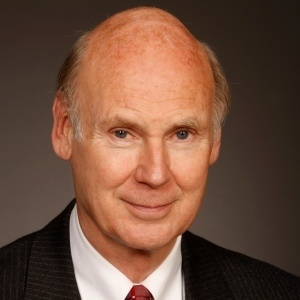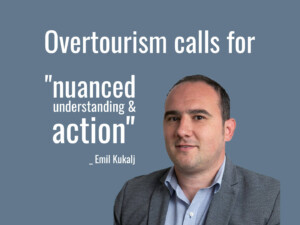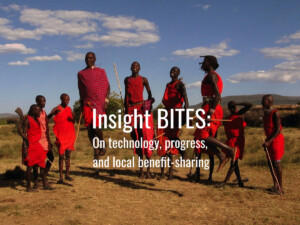Who can be a successful leader of a highly effective tourism association in 2023?

Leadership has never been more challenging, according to K Michael Haywood.
Who can respond to multiple (real and imagined) crises, balance competing stakeholder demands within a coherent vision, and maintain one’s own mental health while attending to the feelings of others?
It’s a “Good Tourism” Insight. (You too can write a “GT” Insight.)
In the “Good Tourism” Insight Bites question, ‘Who’s the new boss? Asia Pacific tourism industry association seeks leader’ (June 13), the responses provided typical, but far from complete, answers.
Being capable and possessing the so-called attributes of leadership is all well and good, but capability must be put to appropriate and purposeful use.
Because the most effective leaders outperform and strive for excellence, potential candidates have to be judged on how their essential attributes have been applied in regard to setting direction, mobilising individual commitment, and engendering organisational and destination capability.
Their ability (or how they intend) to achieve and deliver results relevant for associations has to be clearly evident. After all, such results can be obtuse and multi-faceted given that members (who only join and participate in associations when they add value to their organisations) have varied, yet precise, expectations and requirements.
Don’t miss other “GT” content tagged ‘Travel & tourism industry policy and governance’
Though no mention was made of the need for succession planning, I found it unusual why respondents seemingly ignored how candidates would have to meet the evolving needs, shifting requirements, and expansive roles of associations.
Associations, regardless of the industry, are having to learn how to:
- Adapt to a tumultuous world of poly-crises;
- Embrace their inter-dependencies;
- Cooperate, co-create, and innovate in forthright and transparent ways;
- Create value; and
- Improve the quality-of-life in the regions they represent.
In this new landscape, the definitions of ‘good’ leadership are continually being re-written. The role of industry associations and civil partnerships is rapidly expanding, as explored in the High Meadows Institute report.
‘It’s not the mountain we conquer, but ourselves’
Today, all leaders of associations are expected to be fluent in addressing an ever-expanding set of concerns, although, as one executive implored: “The external pull is becoming so great — to manage issues and pressures and activism — that to be the CEO in a traditional sense is becoming impossible.”
Clearly the ascent to becoming a leader has become steeper and more challenging.
For prospective leaders, it’s no longer about skills and competencies in undertaking the job. Rather it’s about the mental capacity and shifts required in making transitions; managing the scrutiny and intensity of the job; and dealing with the perils and uncertainties characteristic of the lead role.
As Edmund Hillary, the first man to climb Mt Everest, once said: “It’s not the mountain we conquer, but ourselves.”
Ensuring an organisation’s long-term success over the course of unknowable and unpredictable futures represents a formidable undertaking.
Having served on boards of directors, and in interactions with a number of CEOs over the years, I’ve learned that few, initially, ever felt that they had sufficient experience and skills to make decisions on their own.
Once on the job, they seemed to be seeking permission. Only with time, by gaining confidence and building self-awareness, were they able to master the intensity (and loneliness) inherent in the role.
As part of senior recruiting teams for a number of organisations, I‘ve always been interested in how leaders gain self-confidence and what it entails.
I like to ask prospective candidates:
- Who are you as a leader?
- What do you most care about?
- What are your unwavering values?
- What do you do to get the best out of people?
- How do you define value for your member states and communities?
- How do you intend to create that value?
Obviously, I want to see a thorough career portfolio and determine how they have demonstrated their personal character. Having leadership training would be an asset.
In listening to their answers and stories, I try to determine the degree to which they:
- Consider the perspectives of others;
- How well they work in teams;
- Actively listen; and,
- Honestly discuss the difficulties they have faced.
I wonder and worry about signs of unconscious incompetence and their ability to adapt; “to get off the dance floor and go to the balcony” (as mentioned in this useful survival guide for leaders).
Nothing is more important than emotional well-being
Now, I’ll admit, when I first read the headline, ‘Who’s the new boss?’, I cringed. The implication of leaders being command and control types was an anathema to me.
Succeeding as a leader isn’t about the title, it’s about figuring out how to connect with members of the association and the general public. It’s about fine-tuning expectations so that people are motivated, not demotivated.
Today, nothing is more important than peoples’ emotional well-being.
Leading, in this regard, is a balancing act. No one can control the pressures on organisations; the demands coming from the external environment.
In terms of getting a handle on the changing travel environment, and its impact on the leader’s role and responsibilities, I would want to know if candidates are familiar with:
- The European Travel Commission’s report;
- Destinations International’s Community Shared Value;
- PATA’s purpose and ethics; and
- OECD’s tourism policies (particularly related to governance).
Similarly, it would be wise if more association leaders paid attention to The Future of Associations, and the nature of their political role as ‘the voice of the industry’.
This is important because most industry associations remain singular in taking their lead only from what members deem important, rather than paying attention to what the public, researchers, activists, and communities-as-destinations believe is essential.
Tourism associations these days would be remiss if they ignored the voices of communities-as-destinations and the importance of destinations as living communities.
Clearly, the most effective leaders have to stay focused on what matters most and determine what’s best for the association and the communities they represent.
It’s about networking, mastering strategic thinking, building relationships, taking risks, and being decisive.
It’s about empowering and enhancing the capabilities of people who do the work to which they are uniquely suited to.
It’s about prioritising trust over bureaucracy.
The outputs and outcomes of a successful leader
While leaders set the stage for driving performance, it’s travel & tourism’s overall outputs and outcomes that have to be taken into consideration.
Sure travel & tourism’s economic contributions need to be prioritised, but these days attention has to be focused on addressing and resolving a wide range of other concerns, including:
- Diversity, equity, and inclusion (DEI);
- Climate change;
- Artificial intelligence (AI); and
- Environmental, social, and corporate governance (ESG).
It’s also important to be:
- Working with (not against) organised labour;
- Balancing stakeholders’ interests;
- Focusing on improving the effectiveness and resilience of operations;
- Encouraging the ‘right’ types of tourism development; and
- Easing the formation of, and removing the bureaucracy for small to medium-size enterprises (SMEs).
Of course there is a need to:
- Generate novel solutions through creativity;
- Carefully allocate scarce resources;
- Win the war on talent by working more closely with educational institutions;
- Managing across borders and with differing cultures; and
- Forming destination-in-action networks and innovation hubs …
… just to name the obvious.
Association leaders must look to re-purpose tourism; ensure innovation becomes an enduring capability; explore new business concepts; and develop a balanced scorecard for communities-as-destinations to ensure that the association and the industry is appropriately community‑, citizen‑, customer‑, and corporately-centric.
All told, the most effective travel & tourism industry association leaders will be those who have an outsized impact on the performance of the industry, achieving the ability to thrive locally within a global context, while ensuring that tourism activities are fun, memorable, and enjoyable for all.
What do you think? Share your own thoughts in a comment below. Or write a deeper “GT” Insight. The “Good Tourism” Blog welcomes diversity of opinion and perspective about travel & tourism, because travel & tourism is everyone’s business.
“GT” is where free thought travels.
Featured image (top of post): Who can be a successful leader of a highly effective tourism association in 2023? Smiley and frownies by Magic Creative (CC0) via Pixabay.
About the author
K Michael Haywood is Professor Emeritus, School of Hospitality, Food and Tourism at the University of Guelph in Ontario, Canada. Prof Haywood has recently written an e‑book “Astonish, Smarter Tourism by Design”. Find Michael on LinkedIn.






